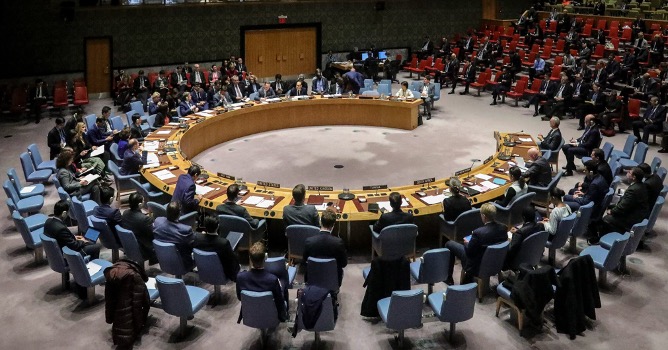The United Nations (UN) Security Council (UNSC) passed the first resolution of the Israel-Hamas war calling for an immediate ceasefire late on Mar. 25, 2024 (Singapore time), reported the Washington Post.
The resolution demands an immediate ceasefire during the Islamic holy month of Ramadan and the "immediate and unconditional" release of all hostages.
The UNSC comprises five permanent members with veto powers over any resolution, the United States (U.S.), the United Kingdom of Great Britain and Northern Ireland (UK), France, Russia and the People's Republic of China.
The U.S. abstained, thereby allowing the resolution to pass. None of the other UNSC members exercised their veto.
UNSC resolutions are legally binding, unlike resolutions passed by the UN General Assembly.
The resolution comes after a U.S.-proposed resolution for an immediate and sustained ceasefire that would last for about six weeks was vetoed by Russia and China.
Russia and China claimed that Israel only agreed to discuss for a temporary pause to the war instead of a complete ceasefire.
It is unclear how the government of Israel's Prime Minister Benjamin Netanyahu will react to this latest development.
Netanyahu, a hard-right Israeli leader, recently declared that he would press on with a military offensive in Rafah, an area in Palestine with many refugees.
This was despite U.S. President Joe Biden's supposed "red line" on such an offensive, although the White House later denied it.
Earlier in March 2024, National Security Advisor Jake Sullivan repeated Biden's view that Israel should not attack Rafah without explaining how it would protect the civilians there, the New York Times reported.
On March 23, 2024, Netanyahu said Israel was ready to "do it alone" in mounting a military offensive in Rafah, AP News reported, as Israel believes Rafah is the last remaining stronghold of Hamas.
However, Rafah also now houses over 1 million Palestinians who have fled the fighting elsewhere in Gaza.
The U.S. and the wider international community fear that a ground invasion would affect the flow of humanitarian aid, most of which comes through the Rafah border crossing.
Related story:
Top image from UN Geneva Facebook.
If you like what you read, follow us on Facebook, Instagram, Twitter and Telegram to get the latest updates.



